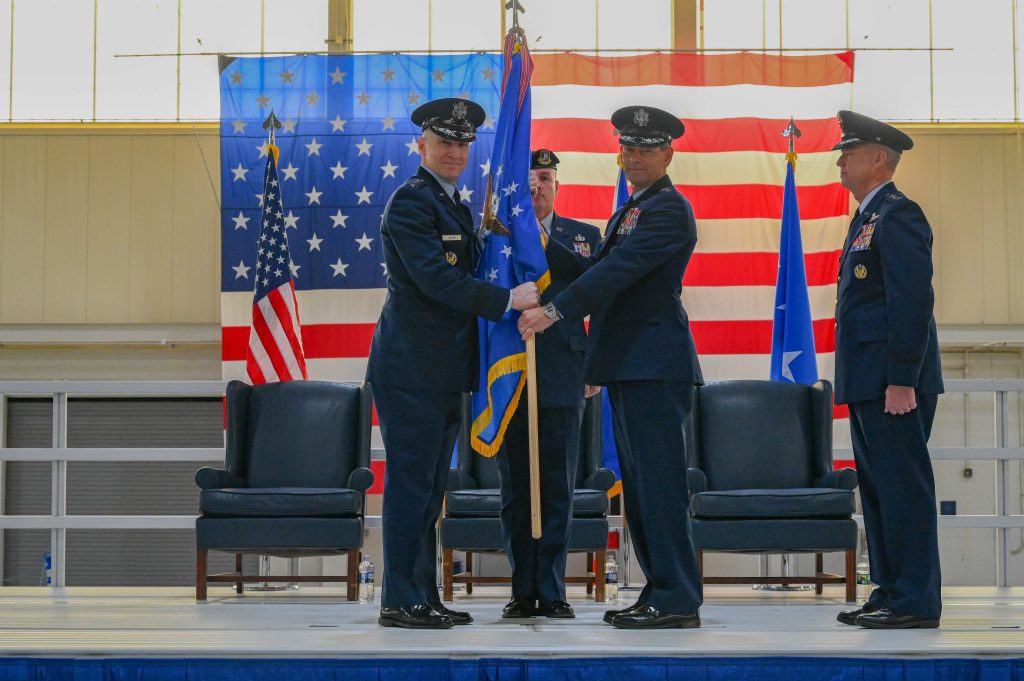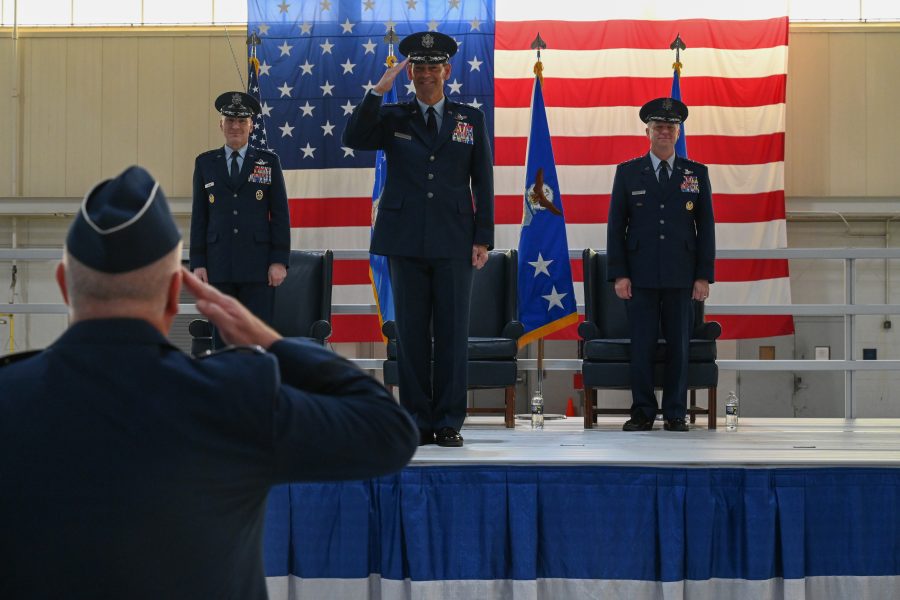Gen. Kenneth S. Wilsbach assumed leadership of Air Combat Command on Feb. 29, succeeding Gen. Mark D. Kelly, during a change of command ceremony at Joint Base Langley-Eustis, Va. And the former Pacific Air Forces commander underscored the Air Force’s pivot toward the Indo-Pacific by emphasizing China in his first address.
“We’re going to work on creating dilemmas for China,” Wilsbach said. “How will we create those dilemmas for China in ACC? First of all, we have to work on readiness, we have to work on modernization, we’ve got to work on Agile Combat Employment. And all those things, are the things Gen. Kelly has been working on. We’re going to pick up where he left off, and we’re going to carry and expand the envelope on all of those.”
In more than three years at PACAF, Wilsbach stressed combat readiness and creating strategic challenges for China, which is now the U.S.’s “pacing challenge,” according to the National Defense Strategy, and has indicated it plans to take Taiwan by force, if necessary. Under Wilsbach, PACAF leaned into the Agile Combat Employment concept, deploying fifth-generation fighters to Tinian and the Philippines for the first time, as well as deploying bombers to train with South Korean and Japanese fighters.
“China has been very clear about what their intentions are towards Taiwan,” Wilsbach said. In contrast, he said, the people of Taiwan “are pretty happy with the way things are.” It’s the mission of the Air Force to deter conflict and protect stability in the region.

In his role new role, Wilsbach assumes oversight of nearly 80,000 Active-Duty Airmen. He will lead several ongoing initiatives, including the transition of units to the F-35, the deployment of the F-15EX to operational units, the phased retirement of the A-10 and F-22 aircraft, and the rapid development and integration of Collaborative Combat Aircraft into the fleet.
He will also be responsible for leading the Air Force’s largest major command by active-duty personnel and combat aircraft as the entire Department of the Air Force starts to “re-optimize” for Great Power Competition.
Chief of Staff Gen. David W. Allvin said ACC will play a key role in that re-optimization, particularly given the urgency of the task.
“We are reoptimizing for Great Power Competition, and we are not starting from scratch,” Allvin said. “Many of the key elements associated with the reoptimization began in Air Combat Command, and we will proliferate them throughout the Air Force, because that is where the future is taking us.”
Wilsbach commended Kelly’s leadership for fostering collaboration among the major commands and leaving ACC well situated for the road ahead. Kelly assumed command of ACC in August 2020 and is retiring after nearly 40 years of service.
With all these changes coming, Wilsbach also reaffirmed his dedication to personnel. Referring to the ACC slogan, “People First, Mission Always,” he pledged to prioritize Airmen’s quality of life.
“We will continue to put an emphasis on the people,” Wilsbach said. “It’s because the people are the ones who do the mission and if the people are hurting, if the people don’t have what they need, they can’t do the mission. So, we will continue to put an emphasis on making sure that those high performing team members can continue to be high performing.”
Wilsbach also acknowledged enlisted Airmen as fundamental to ACC’s capabilities, prompting a round of applause from the audience.
“The enlisted force of the United States military is the reason that we are as good as we are,” Wilsbach said. “It’s not the fact that we’re the richest country in the world, it’s not the fact that we have good officers. It’s because we have good enlisted—those good enlisted that allow us to be able to employ the way that we do, and to execute the way that we do.”
